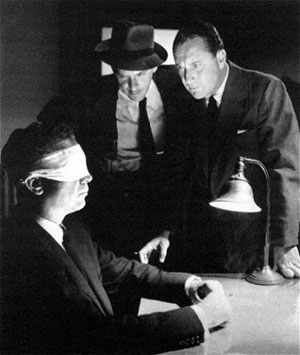It is my opinion that Jonathan Merritt has been the subject of unfair and unwarranted attacks by a few Baptist bloggers. He drew their ire, and subsequently their “friendly fire” because of an article he wrote that was printed in USA Today on April 20, 2009. In that article, he called evangelical Christians to task for their unloving, dismissive and un-Christlike treatment of homosexuals. He was careful to state that he regarded homosexual behavior as sinful and did not support gay marriage. He advocated loving actions to demonstrate to homosexuals the love that we Christians claim to have when we say that we “hate the sin and love the sinner.”
I only read the article after I had read a couple of blogs that had dealt pretty harshly with his article. I was disappointed that the son of a respected SBC leader would write the kind of compromising, unbiblical things that he evidently wrote. Then, I read his article. It is my opinion that what Jonathan Merritt wrote is godly, biblical and true. It is my further assertion that his rebukers (one in particular) have either willfully or negligently misread his statements and have leveled unwarranted and unfair attacks on him. I believe they should honestly and openly reread what Mr. Merritt has written, revise their false statements and apologize to him for misrepresenting what he said.
I do not know Jonathan Merritt and have certainly do not speak for him. I suspect he is well capable of defending himself. However, I have seen the tendency among some bloggers to attack without understanding, to fail to understand doctrinal or ethical subtlety and to level false charges based on their misunderstandings. I believe that such has happened here.
We cannot avoid the subject of homosexuality. We must deal with it biblically – both in our stand for the truth and in our response to those who are tempted by this sin.
One thing I found particularly interesting is that Jonathan Merritt’s view is very similar to Tim Guthrie’s (Welcome to SBC Today) and to Wes Kenney’s (SBC Today) viewpoints. They all expressed essentially the same thing. I share the viewpoints that all three expressed. We believe that homosexual behavior is a sin. We all believe that we must learn to stand for truth clearly and without compromise while demonstrating love to those who struggle with this sin. The only reason that Mr. Guthrie and Mr. Kenney leveled charges against Mr. Merritt is because they misread and misunderstood what he said. They are, essentially, attacking Mr. Merritt for holding the same viewpoint that they have, because they did not read what he wrote carefully, misunderstood, and jump to condemnatory conclusions based on their misunderstandings.
I would like to examine what all three have said. By the time I get this up, perhaps others will have weighed in. But I will deal first of all with what Jonathan Merritt said, then with what Tim and Wes said about his review. Each title will be linked to the original article. I would encourage you to read the originals, to see that I am fairly representing the thought as I make my points.
“An Evangelical’s Plea: Love the Sinner” by Jonathan Merritt
The offending article appeared in the Opinion section of USA Today.com on Monday. Mr. Merritt is described as a faith and culture writer and as a spokesman for the Southern Baptist Environment and Climate Initiative. Tim Guthrie rightly states that it would have been helpful if Mr. Merritt had made it clear that he did not represent or speak for Southern Baptists, an impression that his designation as a spokesman for an organization with the words Southern Baptist in the title could falsely give.
He makes the following major points:
1) That older evangelicals leaders engaged in harsh, even unkind rhetoric toward homosexuals. He asserts that evangelical opposition to the homosexual agenda has been “vitriolic and unbalanced by a message of love for our gay neighbors.”
2) He asserts that the rhetoric and behavior of American Christians is in stark contrast to that of Jesus Christ, who was a “friend of sinners.” He states that many Christians “live in opposition to the teachings of our Lord.” He uses 1 Corinthians 13 as a definition of love and claims that our actions toward homosexuals have often not met that standard.
3) He makes it very clear that he does not and will not compromise biblical truth. He believes that homosexual behavior is sin and that he opposes redefinition of marriage to accommodate homosexual marriage.
4) He does advocate non-discrimination against homosexuals in legal matters not involving marriage. Should secular workplaces be allowed to discriminate against gays and lesbians? Should homosexual partners have visitation and inheritance rights? Merritt would say yes.
His point, I think, is that we have put homosexuality into a special class of sin. We would not discriminate on the basis of heterosexual immorality in these things. Why should we make homosexual orientation a special class?
It is this point (and, I believe, the misunderstanding of his point) that opened the door to many of the attacks against his position.
5) He makes the point that younger Christians, more likely to have homosexual friends than older Christians, also demonstrate a greater tendency to show love to homosexuals.
His concluding paragraph includes these words: “Now is the time for those who bear the name of Jesus Christ to stop merely talking about love and start showing love to our gay and lesbian neighbors. It must be concrete and tangible. It must love beyond cheap rhetoric.”
It is clear that he is challenging evangelicals to a new attitude toward the homosexual community, but that he does not advocate changing our basic beliefs about homosexual behavior being a sin.
“SBC Today” Hate the Spin, by Wes Kenney
Wes Kenney wrote an article professing to hate the “spin” that Mr. Merritt put on the issue, while still loving the “spinner.” I always respect a good play on words, but I am afraid that Wes demonstrates a tendency (also seen in Tim’s articles) to misinterpret what was written and to draw false inferences from that misinterpretation, then to criticize Merritt based on his own misunderstanding of Merritt’s points.
Wes writes a forthright criticism, written in a graceful spirit, with one exception. My biggest problem with him is that I think he fails to understand what was written. He just needs to make an effort to read and understand before he criticizes.
I would point out the following about Wes’ article.
1) Again, he affirms the same view of homosexuality as Jonathan Merritt. His criticisms are directed more against his own misunderstandings than against what Merritt wrote.
2) Wes engages in pejorative in an unacceptable way. He describes Merritt’s writing as “spin.” That implies, deceit, false presentation of facts, designed to lead people away from truth. That is a harsh criticism. He also accuses Merritt of a willingness to “compromise biblical definitions of sin and salvation.” That is serious!
3) He criticizes Merritt for the quotes of evangelical luminaries.
4) He bases his second criticism on a factual error. Merritt quotes a Barna statistic that 80% of Christians are confusing. Kenney adds the words, “on this issue” to the statistic, then criticizes on that basis. This is, to me, indicative of his tendency here to jump to conclusions and not to read carefully. His criticism can only be described as spin, on that basis.
5) He insinuates serious and significant heresy (or doctrinal failure, at least) on Merritt’s part because he advocates non-discrimination against homosexuals in employment and other issues. He calls that normalization and implies that Merritt is helping to make the commission of homosexual sin easier by his viewpoint.
I would ask some questions of Wes Kenney. Do you believe that it will help our mission to homosexuals to maintain laws that would discriminate against homosexuals in matters of employment, housing, visitation rights, etc? Should we apply those same principles to heterosexual immorality?
I believe that anyone who reads Merritt and clearly understands him will read Kenney’s criticism and recognize it as unfair.
Again, I state that if you gave a series of questions about homosexuality to Kenney and Merritt, their answers would be very similar. Their viewpoints are remarkably similar. Kenney misunderstandings led to false inferences and unfair accusations.
“Welcome to SBC Today” Merritt and ACLU on the Same Page, by Tim Guthrie
The graceful spirit of Wes Kenney is largely absent in Tim’s post. He grossly misrepresents Merritt’s position and engages in a common tactic, “guilt by association.” It is not a post worthy of a preacher of Tim’s quality. Tim levels four specific charges against Merritt. Again, I make the following points about the article.
1) The whole “Merritt and the ACLU agree” argument is ridiculous, absurd, even shameful. The ACLU would in no way support Jonathan Merritt’s viewpoint that homosexuality is a sin. This is guilt by association at its worst. It is a shameful smear. Enough said. He also tends to engage in pejorative, labeling Merritt’s views as “dangerous” in terms of biblical understanding and application.
2) The first charge, again, is a complete misunderstanding of Merritt on Guthrie’s part. He criticizes Merritt for something he just does not say. He accuses Merritt of advocating that “Love should cause us to defend the normalization of the homosexual agenda.” Merritt doesn’t say that. Again, all he says is that gays and lesbians should receive basic protections under the law, something I imagine that Guthrie would support if he was willing to understand what Merritt was saying.
3) His second criticism is of Merritt’s view of the law. It is another misunderstanding of what Merritt was saying. I suspect that Merritt would agree with Tim’s point about Jesus fulfilling the law, not negating it.
4) Tim’s third criticism is a blatant misquote and factual misrepresentation (I will assume it is based on misunderstanding, not intentional deceit.) Tim says, “He seems to equate our command to love with a mandate to ‘affirm or endorse.’” He leaves the idea that Merritt advocates the affirmation of the gay agenda. That is simply not true. All you have to do is read the quote that follows to see that Tim got it wrong.
Merritt advocates that we “begin looking for ways to affirm, rather than undermine, our claims to love our gay neighbors.” He is not talking about affirming the gay lifestyle, but letting our actions affirm our claim to love gays.
Tim’s criticism therefore is unfair because his analysis is flawed.
5) His last criticism is of the byline I mentioned above, which might give the idea that Merritt represents the SBC in his opinions. I wish that Merritt’s opinion was universally held in the SBC, but Tim is right that the byline might give a false impression. All of us should be careful to make issues like this clear.
Again, I consider Tim’s use of the ACLU article inaccurate and a shameful smear of a brother in Christ, one that cries out for repentance, not critique.
Conclusion
Again, I think if you had Tim Guthrie, Wes Kenney, Jonathan Merritt and Dave Miller in one room and asked us a series of questions about homosexuality, we would give the same answers in unison.
Is homosexual behavior a sin? Four voices answer yes in unison.
Should the church treat homosexuals with love? Four voices answer yes in unison.
Should Christians be mean, demeaning to homosexuals? Four voices answer no in unison.
Should the church uphold truth even in the face of cultural opposition? Four voices answer yes in unison.
Should gays and lesbians be singled out for discrimination in matters of employment and other basic civil rights? Four voices answer no in unison.
Should we redefine marriage to include two men or two women? Four voices answer no in unison.
Why, then, do we have this debate? Because Wes and Tim failed to read carefully and understand what a brother wrote. They jumped to false conclusions and therefore made false accusations.
NOTE: I just noticed another voice chiming in to criticize Merritt (again, for the nomenclature issue). At some point, aren’t we just piling on?
That’s my read. What say you?










_4505.jpg)
